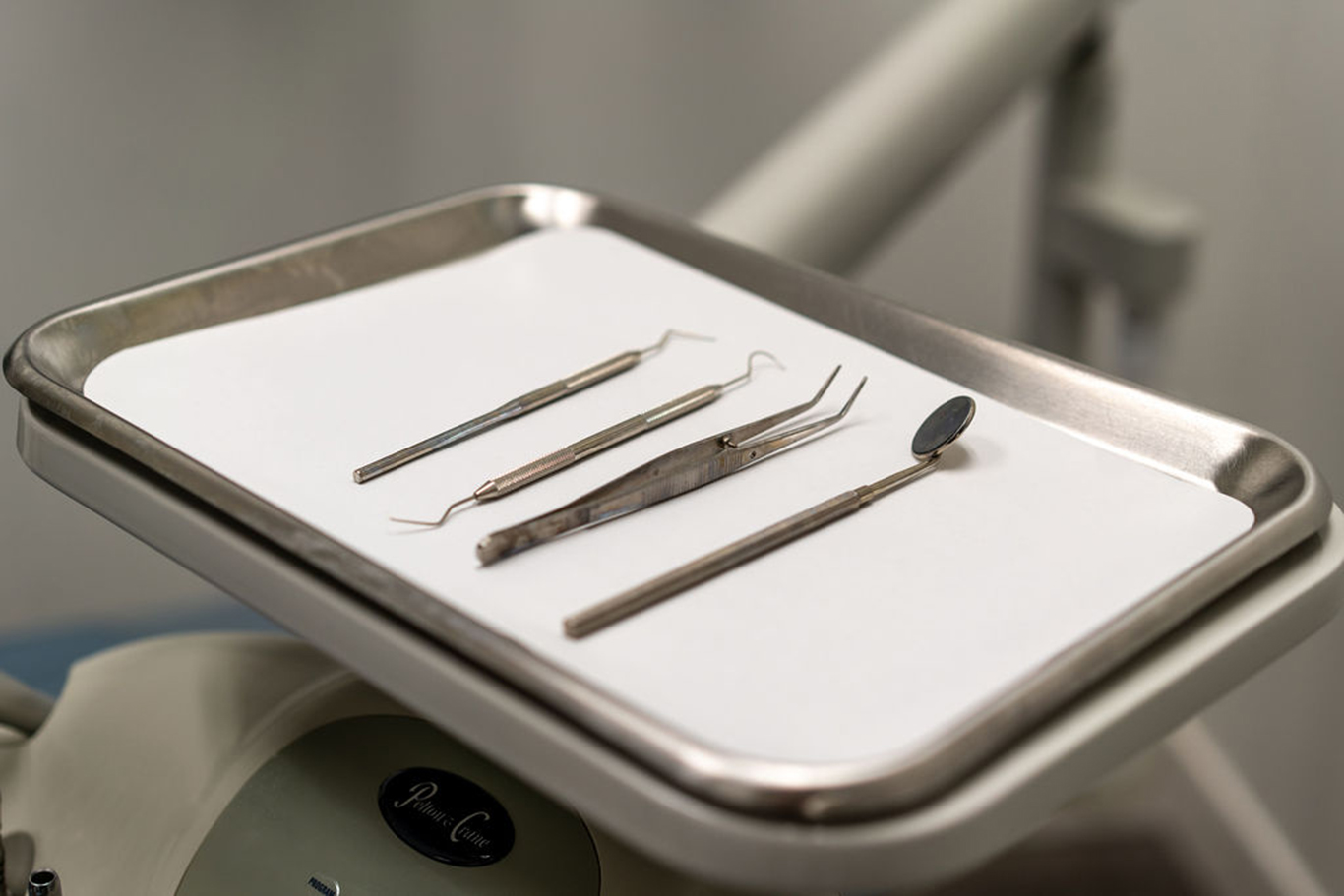Major Restorations
Restorations – Major
Crowns, Dentures, Bridges, and More.
An increase in the understanding of the importance of good dental care has decreased the incidence of tooth decay. However, teeth are still susceptible to decay and breakage and sometimes need to be repaired on a more extensive level than through a simple filling.
We are fortunate to have a fully operational in-house denture lab with BLOK Denture Studio being situated in the same building. This conveniently located partner allows us to provide seamless denture care to our clients with appointments in one location with the same friendly staff of dental professionals.
What qualifies as a major restoration?
A major restortation is a term used to explain the replacement of missing or damaged teeth that includes the involvement of a laboratory and often requires more than one visit to complete. It is a categorization of dental work that is sometimes covered by your personal dental plan up to a certain percentage and then also up to a predetermined total amount per year. However, major restorations don’t always fit into health benefits coverage so we suggest that you review your plan so you understand all that it offers.
Procedures that are considered major are as follows:
- Crown
- Bridges
- Dentures
Will my dental plan cover a major restoration?
Every dental plan and insurer has different coverage amounts. Sometimes major restorations are included in the coverage list. However, they typically do not provide 100% coverage for dental work that is classified as a ‘major’ procedure. The level of coverage can be anywhere from 50-80% for majors, but is typically on the lower end of the percentage of coverage.
With major restorations, the insurer will usually request a predetermination is done so they can evaluate the need and ask for further information if required. The BLOK Dental team is able to handle this process with you and provide all information necessary.
Also, at BLOK Dental Studio, it is our commitment to you that you fully understand your oral health treatment plan and the cost associated with it. One of our administrative professionals can assist you in understanding exactly what dental coverage you have before you agree to any dental work. Our team is knowledgeable on the various insurance providers in the market and can provide guidance and information on the insurance process as it pertains to you.
Crowns
Dental crowns are considered a major dental treatment, and are employed when the tooth is too damaged to support a filling and requires more extensive restoration. Your dentist will build, in conjunction with a dental lab, a custom ceramic or gold crown that will be made to fit over your existing tooth.
Why do I need a crown?
A crown is required when the tooth needs more repair than a filling to restore it back to normal function. There are a few reasons why a tooth would require a crown:
- A large filling is present that has broken, is leaking, or can no longer be supported by the tooth
- The tooth is fractured or cracked
- The tooth has deep or very large decay
- The tooth is very worn down and needs to be replaced
- There is a need to improve function or bite
Crowns also are a good treatment for aesthetic purposes when the core of the tooth is still healthy but may need to be reshaped to create a beautiful smile.
What is the process of getting a crown on my tooth?
In order to get a crown, two visits are required. In the first visit, the dentist will administer freezing to the area in order to file down the tooth. After the tooth is filed down to the right shape, or filled in some instances, an impression of the area will be taken that includes the tooth and surrounding teeth. This is done with 3D digital scanning software.
Once the impressions are complete, they are sent to the dental lab so that a crown can be made.
Before you leave this first visit, a temporary plastic crown will be glued over the tooth until the permanent crown is complete.
In your second visit, a permanent crown is placed with a special long lasting glue. This visit is usually much shorter than the first visit and doesn’t typically require any freezing. The temporary crown is popped off, and the new one positioned and fastened.
Bridges
A bridge is a false tooth that is inserted into your mouth and adhered to other supporting teeth to close or fill any gaps in your smile. The surrounding teeth are often modified to be able to support the bridge.
What is the difference between a bridge and a crown?
While a crown is much more like a hat or cover for your existing tooth, a bridge is a restorative tool that completely replaces a tooth that is missing.
There are different types of bridges that your BLOK Dental professional may recommend. The recommendation comes from an assessment of where the tooth is in your mouth and what state the surrounding teeth are in.
What is the difference between a bridge and a dental implant?
While a crown is a covering for a single existing tooth, a bridge is a restorative tool that replaces a missing tooth using the neighbouring teeth as anchors. A bridge is made up of two or more crowns for the teeth on either side of the gap and a false tooth that is fused to these crowns.
If a tooth is missing at the front of your mouth or the teeth adjacent to the missing tooth are in good shape, it may make more sense for your dentist to consider a dental implant instead of a bridge.

Dentures & Partial Dentures at BLOK Denture Studio
A denture is a removable dental appliance made for the replacement of missing teeth and surrounding tissue. They are made to closely resemble your natural teeth and enhance your smile.
There are two types of dentures – complete and partial dentures. Complete dentures are used when all of the teeth are missing, while partial dentures are used when some natural teeth remain. A partial denture not only fills in the spaces created by missing teeth, it prevents other teeth from shifting.
A complete denture may be either “conventional” or “immediate.” A conventional type is made after the teeth have been removed and the gum tissue has healed, usually taking 4 to 6 weeks. During this time the patient will go without teeth. Immediate dentures are made in advance and immediately placed after the teeth are removed, thus preventing the patient from having to be without teeth during the healing process. Once the tissues shrink and heal, adjustments will have to be made.
Dentures are very durable appliances and will last many years, but may have to be remade, repaired, or readjusted due to normal wear.
Why would I need to get dentures?
There are a few reasons why a patient needs to get dentures. This assessment is made with the knowledge of the condition of your teeth and past dental history. Each recommendation made by the BLOK Dental team is with your comfort in mind.
-
Complete Denture – Loss of all teeth in an arch.
-
Partial Denture – Loss of several teeth in an arch.
-
Enhancing smile and facial tissues.
-
Improving chewing, speech, and digestion.
What does getting dentures involve?
The process of getting dentures requires several appointments, usually over several weeks. Highly accurate impressions (molds) and measurements are taken and used to create your custom denture. Several “try-in” appointments may be necessary to ensure proper shape, color, and fit. At the final appointment, your denturist will precisely adjust and place the completed denture, ensuring a natural and comfortable fit.
It is normal to experience increased saliva flow, some soreness, and possible speech and chewing difficulty, however this will subside as your muscles and tissues get used to the new dentures.
You will be given care instructions for your new dentures. Proper cleaning of your new dental appliance, good oral hygiene, and regular dental visits will prolong the life of your new dentures.

